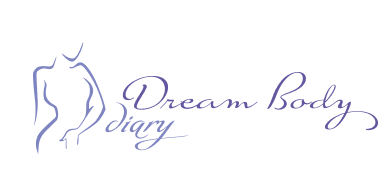The world is 4 billion years old and you somehow managed to exist at the same time as dry shampoo. Blessed be this wonder powder for those of us who joined the Wash Your Hair Less Movement and, yes, those of us who are… simply lazy.
Like all inventions that shift humanity, we need to ask ourselves the hard questions: is this bad? And the answer is a bit of yes and no. When used too often, this otherwise incredible product has less-than-great effects on hair and skin; some of those including hair loss! For the full list of where dry shampoo gets it wrong, read on.
Recommended: Does Heat Protectant Really Work? Well, This is What Happens When You Don’t Use it.
How Does Dry Shampoo Work?
To better understand how dry shampoo can be bad for hair, you should know what it’s doing on your scalp in the first place. Usually based with absorbent ingredients like powders or starches, these soak up sweat and excess sebum from the scalp and root of your hair. Dry shampoo often includes alcohol-based ingredients to remove your scalp’s excess oils too.
It’s like using a setting powder: the powder sits atop your pores and absorbs any oil that has and will come through. OR if you’ve ever tried to thicken a pasta sauce by adding corn starch, this is also the same visual. There are 2 types of people in this world.
Recommended: How To Grow Short Hair Out As Fast As Possible
Is Dry Shampoo Bad For Your Hair?
More specifically, are the ingredients in dry shampoo bad for hair? While some brands promise alcohol-free, talc-free, or a combination of “natural” ingredients, they’ll all perform the same trick: sit on your scalp, absorb oil, and block more from showing through. This is what that does to hair:
Breakage
You can blame alcohol on this one and we’d allow it. One of the most popular ingredients in dry shampoo is alcohol for its ability to dry up oil and help absorb some of the excess on your scalp. Alcohol is super drying to skin and hair, so with constant application of this stuff, your strands become verrry dry where it matters most: the scalp.
When hair becomes dry, the fibers can crack and snag much easier. Making heat styling a lot more damaging. Even brushing can be a cause for breakage if you’re over-using dry shampoo and other alcohol-based products.
Recommended: Bad Ingredients in Shampoo You Should Stay Away From
Clog Hair Follicles
Back to our setting powder analogy: if you didn’t wash your face, but kept applying powder over your skin, I’d put money down on you getting a breakout. This is what your scalp is going through!
With repeated use of any styling product, hair follicles can become blocked, but with dry shampoo, this is done ten-fold as its purpose is to block oil. Overuse of dry shampoo, and without regular washing, can create scalp buildup that includes bacteria and fungus!
Recommended: 5 Natural Scalp Treatments You Can DIY
Dandruff and Irritated Scalp
If it wasn’t clear, dry shampoo does not wash away the oils on your scalp. Meaning, you’re not getting the benefits of a shower in a bottle (sorry). While it may look like your oily hair is gone, dry shampoo just joins the oil on your scalp and makes it less noticeable. So as you push your wash day further, this oily, powdery, occlusive mess continues to sit on your scalp: a mega cause for dandruff.
And the reason your hair won’t smell from this? Dry shampoo’s odour-absorbing and smell-covering ingredients. Scalp oil smells, so dry shampoo will often add fragrance to help cover it, while its starchy base works to absorb the oil its coming from. And as our scalp doesn’t naturally want to smell like candied cherry, scalp skin can become a little irritated.
Recommended: The Best & Worst Products To Use On Hair Extensions
Stunt Hair Growth
One of the best benefits of not washing your hair so often is that it can encourage hair growth! Let it be known that dry shampoo is not part of the no-poo routine. All the good things hair needs to grow are impeded with dry shampoo: a bit of scalp sebum and proper cleansing.
Clogging the hair follicle with powder and built up oil will only stunt hair growth due to a literal blockage. Your follicle needs stimulation, blood flow, and a little room to breathe in order to flourish so trapping in alcohols, starch, and oil will not be helping your growth journey.
While washing your hair LESS is important, you still do need to wash away bacteria, oil, and styling products. A bit of scalp bacteria is good, but when your hair is very oily, it’s trying to tell you there’s an excess! Dry shampoo is fine once in a while, but don’t let it make you forget to wash.
Want more on hair health? Read these next:
- Should You Exfoliate Your Scalp? Yes And Here’s Why.
- How to Stop Scalp Itching: 5 Actually Easy Ways

